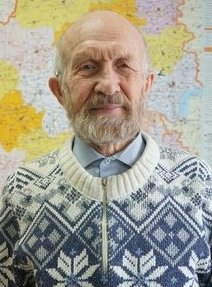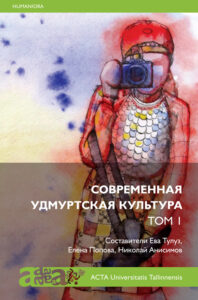KOMI: Regional elections in Komi Republic gave voice to ethnic Komi activists
On 13 September, elections on different levels were held across Russia. Among them were elections of the chief executive of Komi Republic and elections of the Komi Republic's regional parliament. The winner of the race for the Komi's top position, Vladimir Uyba, was recently appointed by the Russian president Vladimir Putin. He was sent to Komi Republic at the peak of the coronavirus pandemic and very poor performance of the previous authorities. He tried to show himself as a close person to local Komi people saying that he has an Estonian ethnic background. During the campaign he also was supportive to some opposition agenda like the prevention of the construction of landfill at Shies station just 100 km from the Komi Republic's capital Syktyvkar and reallocation of tax revenues in favour of Komi Republic instead of the federal budget. Uyba got 73,16% of the votes. His major opponent, leader of the local section of the Russian Communist Party Oleg Mikhaylov was not allowed to run in the elections. On 23 September on inauguration ceremony Uyba also took the oath in Komi language.
Elections to the regional parliament were more competitive. Komi Parliament has only 30 seats and the competition was very intensive. A few Komi activists also participated through different parties and independently, thus making Komi agenda more visible and the voice of Komi people louder. Komi linguist Marina Fedina, head of Komi Voytyr in Syktyvkar, together with her deputy, young political activist Nikolay Udoratin participated in a rally under the umbrella of Communist Party. Head of Komi Voytyr, Alexey Gabov, also participated in the same district where his colleagues were running. Finally, this district was won by an ethnic Russian Vladimir Kosov, former deputy speaker of the parliament, well-known oncologist, and member of the ruling 'United Russia' party.
Another prominent Komi figure, ex-leader of the Komi Youth Association 'MI' Yana Sazhina ran as an independent candidate for 13th district but lost her battle. Komi candidates from the opposition, like Fedina and Udoratin, were promoting local pro-Komi agenda, and raised attention to the catastrophic situation of Komi language, ecological problems, poverty and disparity in the region. Thanks to their participation this agenda gained more attention and allowed them to express the aspirations of thousands of local people, both Komi and non-Komi, to have their own region-centered politics instead of the Moscow-centered one. Ultimately, 6 of the 30 seats of the Komi parliament were taken by ethnic Komis.
UDMURTIA: One year
since Albert Razin's political suicide act in Udmurtia: has anything changed?
Last year, on September, 11th, Udmurt scientist and civil leader Albert Razin committed an act of self-immolation in front of the parliament of Udmurt Republic, in protest against the ongoing language policy regarding the Udmurt language. He died a few hours later.
This year, Udmurts, Maris, Tatars and Chuvashs commemorated Albert Razin on the first anniversary of his death. A week before the anniversary of his tragic death some Udmurt activists, Razin's friends and relatives came together to his native village where his ashes were dispelled. Also a few people came from Tatarstan and Chuvash Republic. Prayers of the traditional Mari religion proceeded praying commemorating Albert Razin. However, neither the authorities of Udmurt Republic, nor the main official Udmurt association Udmurt Kenesh paid any attention to Razin's death.
At the time of Razin’s death, authorities of Udmurt Republic dismissed the criticism and claimed that there are no problems with Udmurt language in Udmurt Republic and the language is under state protection. Since last year, no major changes have followed. Authorities of Udmurt Republic have not changed their attitudes towards the Udmurt language. In June, during 260 anniversary festivities of Izhevsk, the capital of Udmurt Republic, local authorities used only Russian for greetings on the billboards and street signs. The second republian official language, Udmurt, was completely ignored. In summer 2020, authorities announced that Udmurt language will be studied in 8 more classes (1 school in Glazov and 4 schools in Mozhga) starting from September, 2020. Still Udmurt is being taught at only 32% of the region's schools, while Udmurt language has never been an obligatory subject in the schools of the republic. UNESCO Atlas of the Endangered Languages considers Udmurt as a definitely endangered language.
ESTONIA/UDMURTIA: New book about contemporary Udmurt culture published in Estonia
The Russian-language collection of academic articles, entitled „Contemporary Udmurt culture“ analyses the current situation of Udmurt folk culture and shows how Udmurts have managed to preserve their identity and carry forward a rich and distinctive culture. The book addresses such cultural phenomena as folklore and festival movements and tourism that are based on Udmurt village culture. The book shows ho changes in Udmurt culture are happening at such a fast pace that researchers can hardly record and reflect on them. The book was published Under the Acta Universitatis series of Tallinn University and was edited by Eva Toulouze, Nikolai Anissimov and Yelena Popova. Authors of the articles include ethnologists, folklorists, anthropologists, historians, ethnomusicologists, sociologists and other specialists, most of them ethnic Udmurts.
More information (in Estonian): https://fennougria.ee/ilmus-uurimus-nuudisaegsest-udmurdi-kultuurist/
SETO: Seto
Kingdom Day held for the first time in Kolossova village
On September 5, Seto people held the 27th Seto Kingdom Day in the Kolossova village in the far South-Eastern corner of Estonia. „The event is fundamentally the same from year to year, but during the past three-four years we have changed the locations. This is our goal, to bring Setos and friends of Setos to beautiful locations. If you look around, then Kolossova is a very beautiful place,“ Aarne Leima, head organizer of the event told the Estonian Public Broadcasting. According to the tradition, masters of the Seto kingdom were elected: the best makers of bread, home-made cheese, beer, wine and moonshine. However the most important election was that of the new head sootska – earthly representative of Seto god-king Peko. This time, the previous head sootska Rein Järvelill received the strongest support and hence will continue in this role for another year.
More information (in Estonian): https://www.err.ee/1131713/setod-pidasid-kuningriigi-paeva-ja-valisid-ulemsootska
Comments? Feedback? Story suggestions for the next URALIC Beat newsletter? Write us to beat@uralic.org
Please share URALIC Beat on social media:

Write first comment